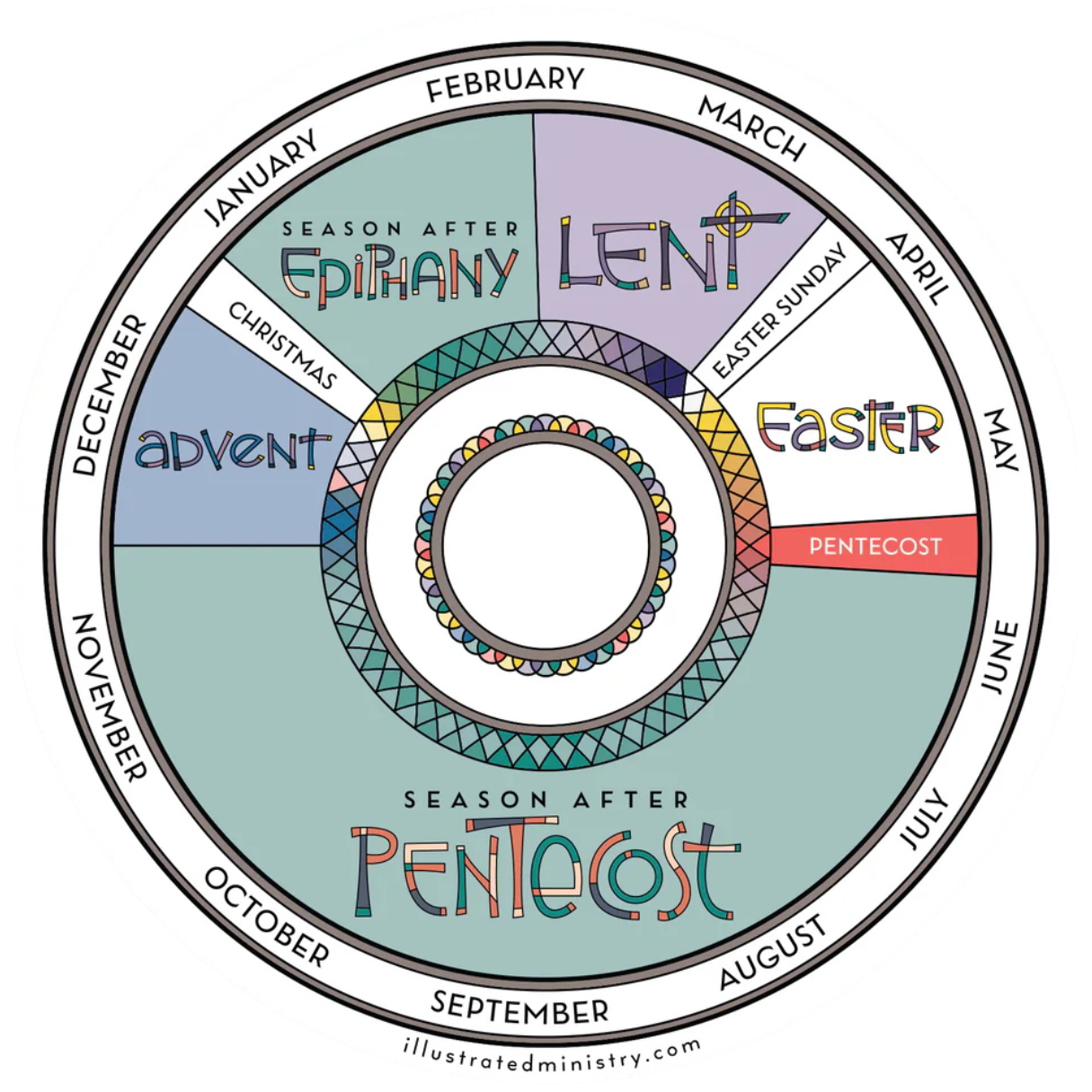
Certainly, these last few weeks have felt anything but ordinary. In this case, the word ordinary refers not to a description of how the world seems but to the ancient rhythms of the church calendar. Ordinary time here comes from the Latin ordinalis, meaning “numbered” or “ordered.” There are two seasons of Ordinary Time on the church calendar: the season after Epiphany, and the season after Pentecost. Each Sunday in an Ordinary season is assigned an “ordinal number” (e.g. Second Sunday after Pentecost) to help us stay grounded to the times of celebration that precede them. But Ordinary Time is unique because it is not a season of preparation (like Advent and Lent) or a season of celebration (Christmas, Easter, and Pentecost). In Godly Play, we refer to the Ordinary Time after Pentecost as, “the great green growing time.” Just like a garden takes time to go from seeds, to sprouts, to mature plants, to ripe fruit on the vine, we need a time for our faith to grow and produce fruit. Ordinary Time is exactly the fertile soil that God can use to nourish us with time for prayer, study, action, and reflection.
For the Ordinary Time in the Season after Pentecost, the Summer and Fall months are an opportunity to nurture the callings we have discerned during the Lent and Easter seasons. It is in these months of reflection and meditation that we listen to how God is moving in us, breaking our hearts for the needs we see around us and emboldening us to take action with our gifts to meet them. These months are space to walk with God in the unassuming rhythms of daily life and practice being a disciple. Jesus invites all who are curious about his Way to, “Take my yoke upon you, and learn from me” (Mt. 11:29). He invites us to imagine that we are the oxen, and he is the farmer, leading us in the way to go. We might also imagine that Jesus is the experienced craftsman, and we are the apprentice. By walking with Jesus and watching how he lives faithfully to God in each moment, we eventually grow in our abilities as disciples until our work is at the level of the master. In this case, the work in which we are apprenticed is to love the world back into wholeness through our compassion, mercy, and care for our neighbors and enemies alike. According to Colonial Williamsburg, it takes an apprentice between 3-7 years to learn a craft, but it takes decades of practice to become a true master craftsman. As United Methodists in the way of John Wesley, this may sound like “moving continually toward Christian perfection.” But to some of us, it may just sound like a lot of work.
Two things are helpful to me when thinking about how God is working to transform our ordinary lives during Ordinary Time. First, Jesus may use the metaphor of work, but he has a very different management style than most of us are used to. He says that while we are walking and working with him, we will discover that he is “gentle and humble in heart… For [his] yoke is easy, and [his] burden is light” (Mt. 11:30). Jesus does not call us to work for him as servants, or as rats running on a perpetual wheel toward impossible perfection. Jesus invites us to work with him as partners in ministry. This green growing time is a season of joyful transformation that does not rely on our efforts but trusts that God’s grace is forming us as we offer our hearts and hands in worship and mission.
Second, this work is not rushed. You’ll see the liturgical calendar portrayed above as a circle, with each season represented in a different color. This calendar is not a square or rectangle like most of our calendars, but it repeats in an endless cycle going around and around with each passing year. This repetition means we get to enter the seasons of the church year as new people with each cycle as our experiences change our understandings of ourselves and the world. When we enter Ordinary Time each year, we have another opportunity to grow where God is leading us to explore employing our gifts in ministry to the world. We have time over the span of our lives to keep listening, keep trying, and keep accepting God’s second chances to try again in the boldness of grace.
This year during Ordinary Time, I wonder how you will walk with God into the calling you have discerned. Wesley would probably remind us here that no one can be a Christian alone, and that all of us are called to “social holiness,” meaning we do ministry together. Perhaps you will take part in a bible study or small group to meditate on how the Spirit is leading you through sacred stories or the stories of others. Maybe you’re being called to serve your neighbors, and you’re ready to join one of the many missional efforts through WUMC or one of our partner organizations. Or, maybe you’re feeling tired and heavy laden and what your Spirit needs right now is rest and relationship. You might take some time to turn off the news and put down your digital devices to spend some time encountering God through the beauty of creation or be intentional about growing in relationship with old or new friends. This is the season to embrace the gift of slowing down and to trust that whatever faithfulness we offer to God, God will respond in gratitude and by inviting us deeper into love.
How will you grow during this beautiful, ordinary season? Where is God calling you to explore something new, or to lay something down? Whatever your call, remember that you are not growing alone. You are planted alongside your siblings in Christ, growing together toward an overflowing abundance of grace.
~ Zack Griggs, WUMC Family Ministry Coordinator

